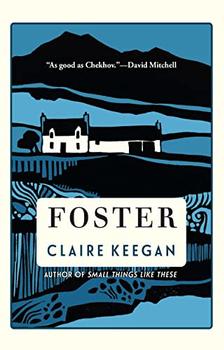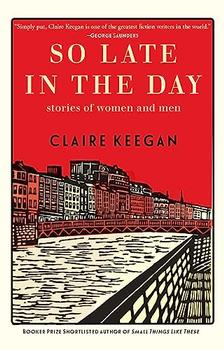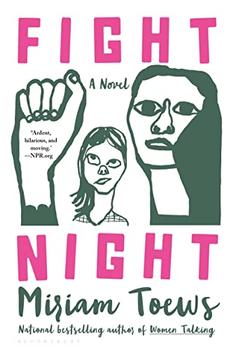Summary | Excerpt | Reviews | Beyond the book | Read-Alikes | Genres & Themes | Author Bio

Irish author Claire Keegan is experiencing a surge in popularity, thanks to the selection of her 2021 novella Small Things Like These for the 2022 Booker Prize shortlist. Foster was Keegan's third book, following two short story collections (see "Beyond the Book" for more on Keegan’s career). Although an abridged version of Foster was published in the New Yorker in 2010, this is the first time American readers have had the opportunity to read this miniature masterpiece in full. Coming in at under 130 pages, the novella bears all the hallmarks of a book several times its length: a convincing and original voice, rich character development, an evocative setting, just enough backstory, psychological depth, conflict and sensitive treatment of difficult themes like poverty and neglect.
Keegan’s narrator, a young Irish girl, is never named. One Sunday, in the middle of a long, hot summer, instead of taking her home after Mass, the little girl’s father drives her toward the southeast coast. She has gathered from her father’s conversations that their family farm is struggling, and her mother is exhausted and pregnant once again. As if she is a nuisance, just one of too many mouths to feed, the girl is dropped off with her mother’s relatives, John and Edna Kinsella, a childless couple, for an indeterminate stay.
When Mrs. Kinsella bathes the girl and takes her into town to shop for new clothes, it’s the first time she has known such tender treatment. In the early days at her foster home, she walks on eggshells, terrified of wetting the bed or breaking something. Readers will infer from this behavior that, back home, her parents have beaten or at least verbally abused her for such incidents — just for being an ordinary child. Gradually, she starts to feel safe in her new home, assisting with daily chores, enjoying the rituals of cooking with Mrs. Kinsella and playing with Mr. Kinsella, who times her run down the driveway to see how quickly she can return with the day’s mail.
One of the first things Mrs. Kinsella tells the girl is “There are no secrets in this house, do you hear? Where there’s a secret, there’s shame — and shame is something we can do without.” It’s a wonderful, liberating thing to say to a child, yet it’s an ironic declaration, we soon learn, for the Kinsellas have their own painful secret: they had a son who died young. When the girl hears this from a neighbor, she feels sorry for the couple who have nurtured her. Serving as their replacement child has given her in turn a chance to experience true affection. “Kinsella takes my hand in his. As soon as he takes it, I realise my father has never once held my hand,” she reflects. But what will happen when summer ends?
Although Foster feels like a timeless fable with a rural Irish setting, a brief mention of IRA hunger strikers grounds the novella in the year 1981. Telling the story from the child’s perspective works perfectly because the narrator simply records what she sees and hears, in the present tense and without interpretation. Dramatic irony results from her descriptions of matters she doesn’t fully understand: although she might not realize that her family is poor or that she has been neglected to the point of abuse, readers do.
I happen to know (since it's my last name) that the word “foster” comes from Old English and means “to nourish or rear.” The Kinsellas do so much more than feed, house and clothe this girl, though. They make her feel that she is loved and valued; they nourish her spirit. I finished this one-sitting read in a flood of tears, hoping the Kinsellas' care might be enough to protect the girl from the harshness she may well face in the rest of her growing-up years. In this exquisite novella, Keegan unfolds a cautionary tale of endangered childhood, also hinting at the enduring difference a little compassion can make.
![]() This review
first ran in the November 16, 2022
issue of BookBrowse Recommends.
This review
first ran in the November 16, 2022
issue of BookBrowse Recommends.

If you liked Foster, try these:

by Claire Keegan
Published 2023
From Booker Prize Finalist and bestselling author of "pitch perfect" (Boston Globe) Small Things Like These, comes a triptych of stories about love, lust, betrayal, and the ever-intriguing interchanges between women and men.

by Miriam Toews
Published 2023
From the bestselling author of Women Talking and All My Puny Sorrows, a compassionate, darkly humorous, and deeply wise new novel about three generations of women.
Failure is the condiment that gives success its flavor
Click Here to find out who said this, as well as discovering other famous literary quotes!
Your guide toexceptional books
BookBrowse seeks out and recommends the best in contemporary fiction and nonfiction—books that not only engage and entertain but also deepen our understanding of ourselves and the world around us.